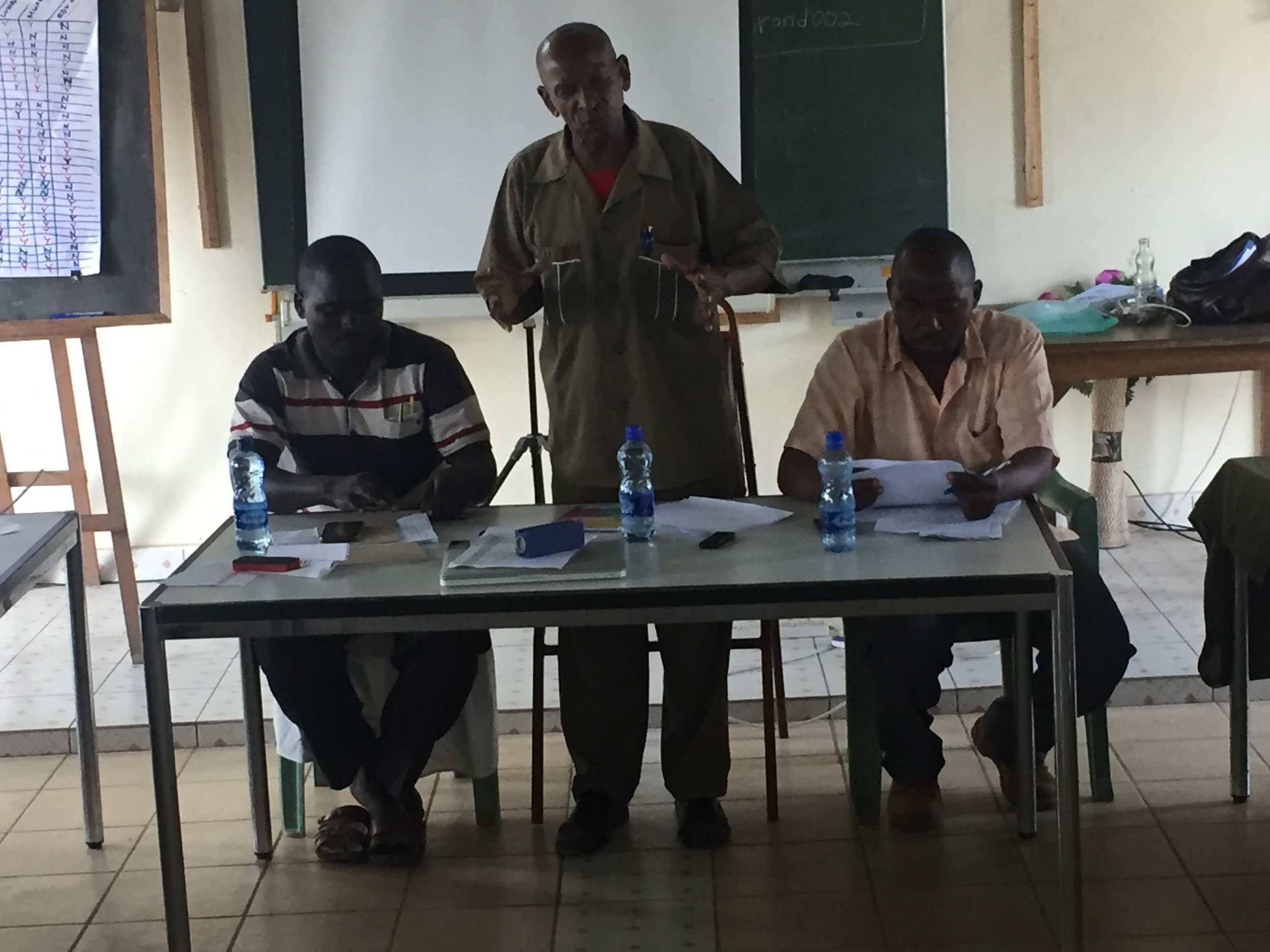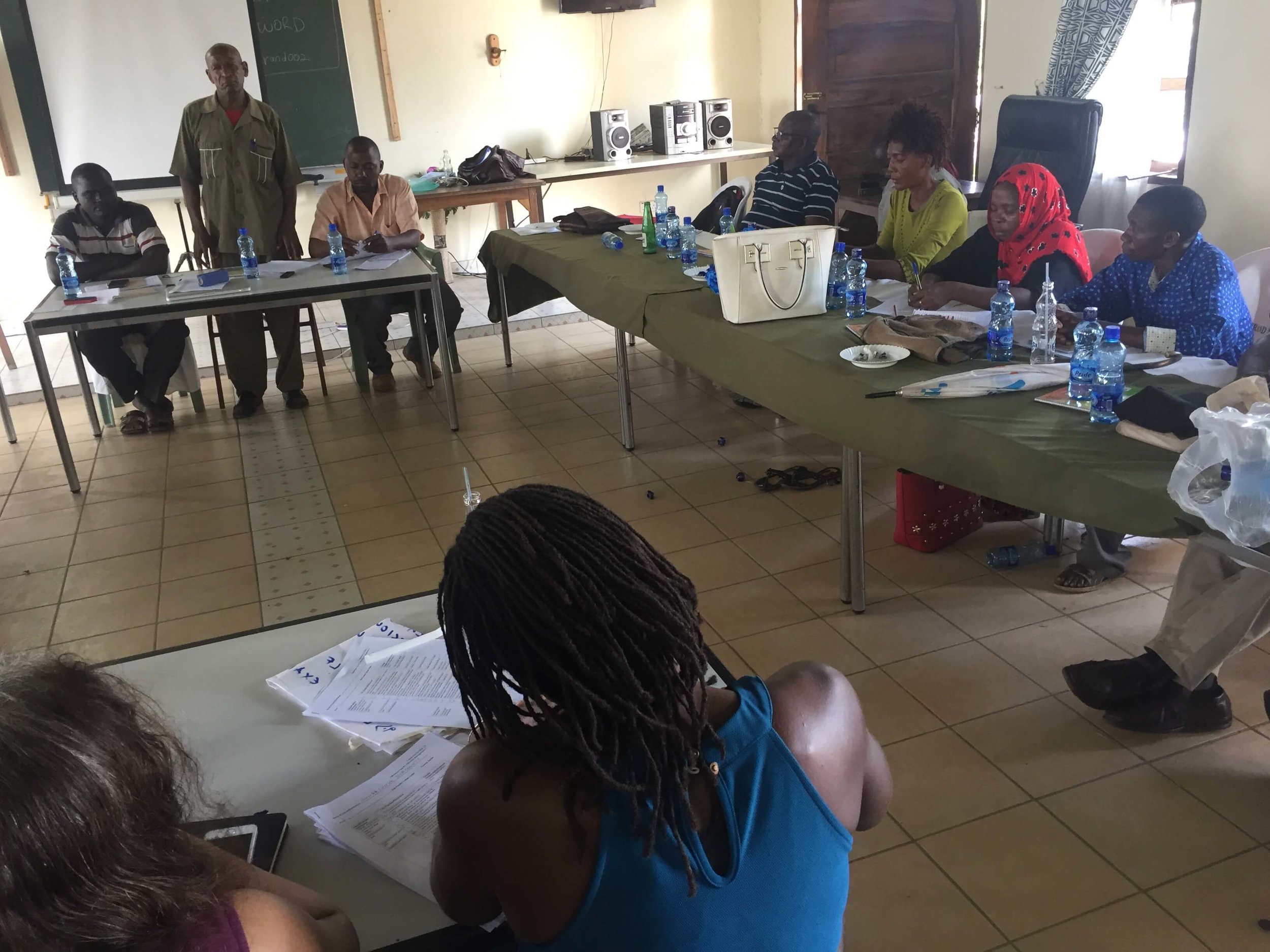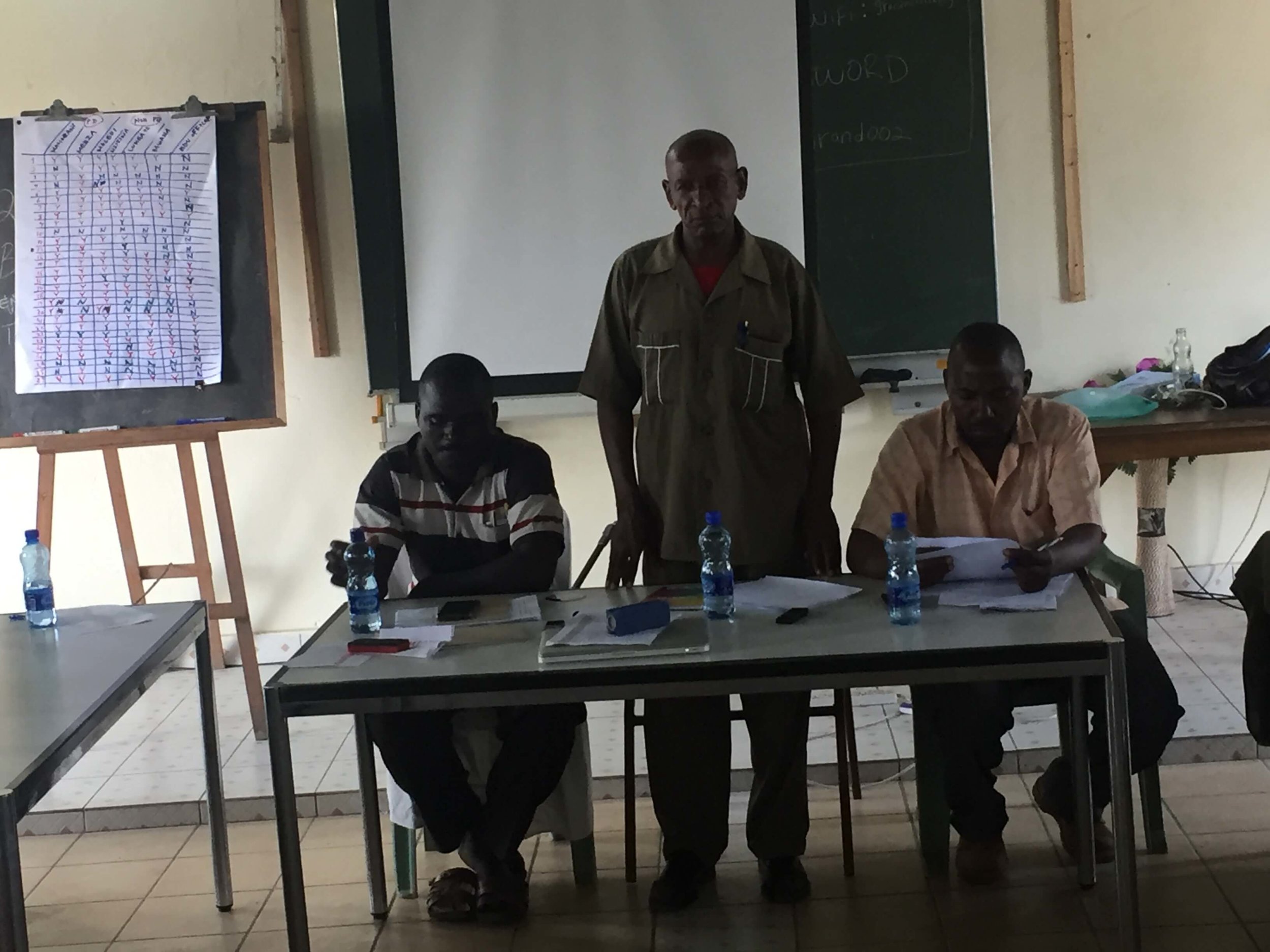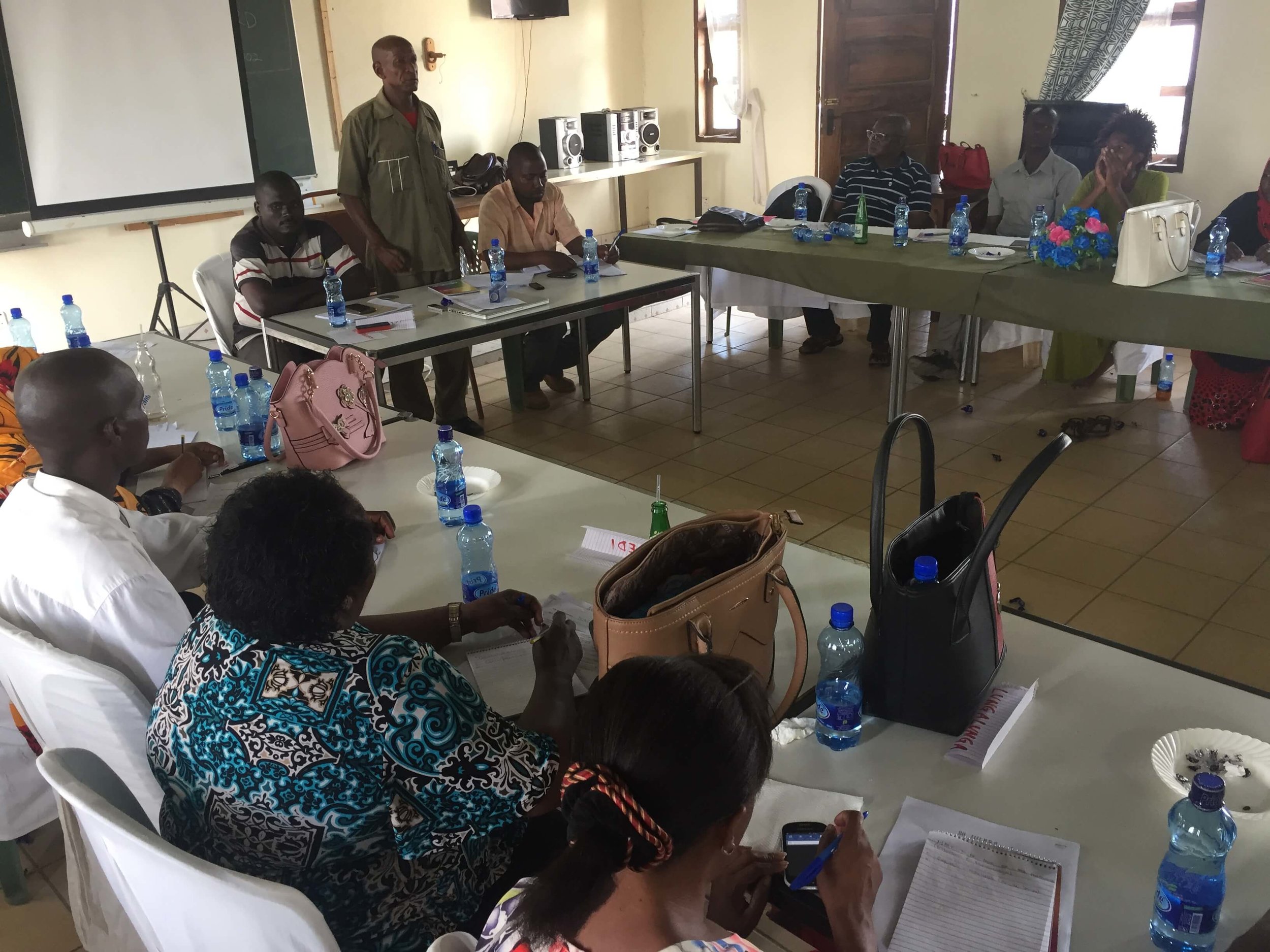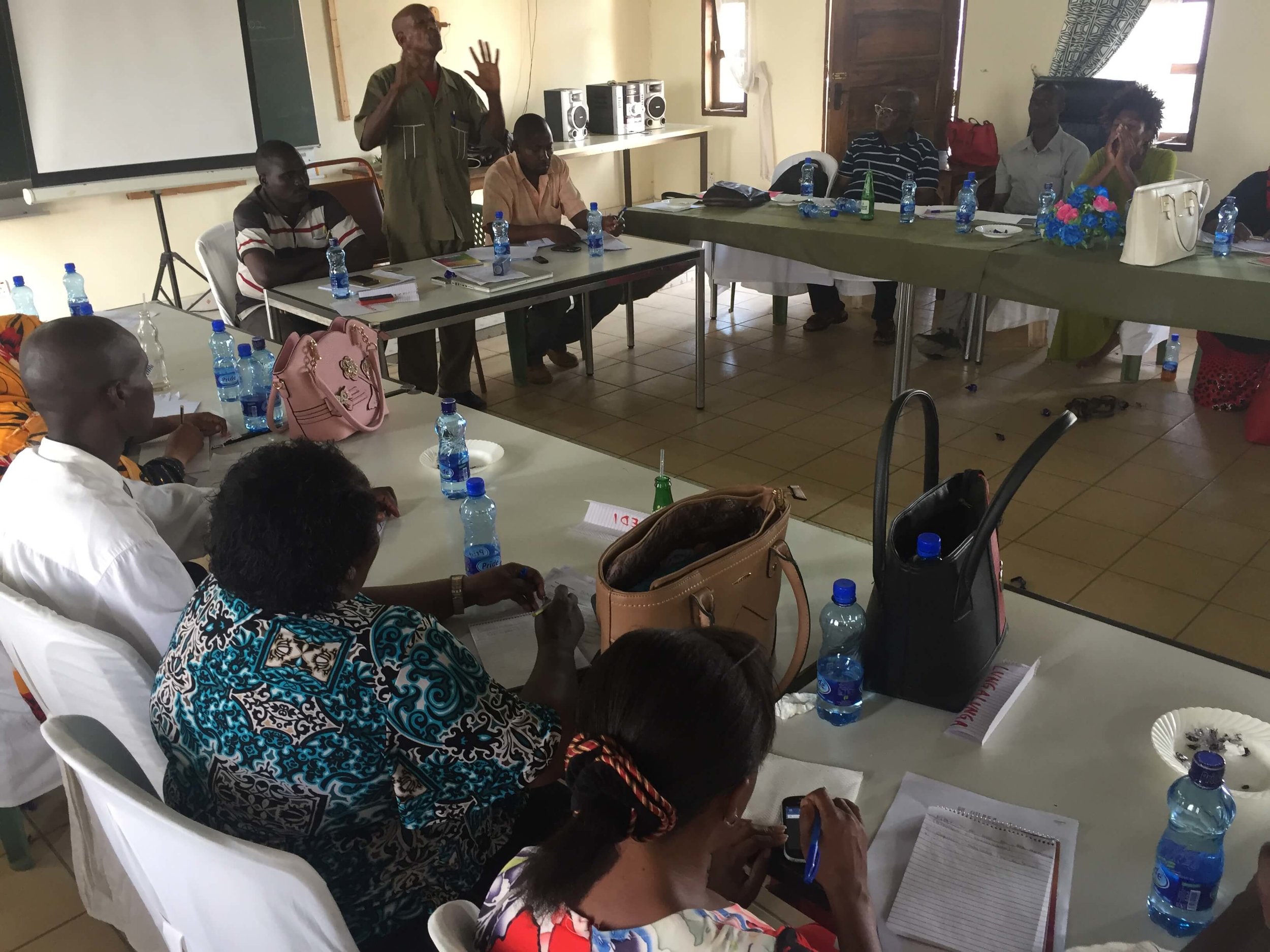On 10 January 2019, Masimbani Primary School was awarded the Jaslika Cup for Values and Resilience. The Cup was dedicated to all the children and teachers in the school, who despite the harsh learning conditions, have shown that they have the strength to overcome the problems and still do well in national examinations. Two children, a girl and a boy, from the graduating class of 2018 were also presented with certificates of appreciation for demonstrating positive values and resilience in their behaviour during their time at the school. The two, Janet Ngiki Kyalo and Peter Maina Kamanthe, were nominated by the school for this recognition.
About Masimbani
Masimbani Primary is a public school located in Kwale County in the Kenyan Coast. The community surrounding it is largely poor and illiterate with many eking out a living from small plots on which they grow subsistence crops. Few people living in the community are in formal employment. There are a few teachers, shopkeepers, carpenters, butchers, security officers (as police and guards) and tailors. Others work as domestic workers or are casual workers. There are those who are unemployed, and no definite source of income to support their children’s education. Common social problems in the community include alcoholism, violence against children and wife battery.
Why Masimbani?
We selected Masimbani Primary because it has an interesting story behind it.
First, it stands above other public schools in similar resource constrained environment, managing to overcome all odds to become one of the best public Primary Schools in Kwale County within a relatively short period of time. The KCPE results for the last five years (2014 - 2018) indicate significant and steady improvement in performance over the last five years, well above the county averages for these years.
Second, it is a testimony to what good, committed and visionary leadership can do in a relatively short period to transform a poorly performing school, characterised by high levels of teacher and pupil absenteeism, school-community conflicts, and inadequate facilities to one where all stakeholders work together to produce positive results.
Third, the Masimbani experience suggests that good leadership can be provided by people from relatively humble economic and educational backgrounds. They can steer a school effectively to produce good examination results by mobilizing communities, acting as intermediaries between the school and parents, and implementing what they believe are strategic interventions.
The Masimbani Story
The Chair of the Masimbani Board of Management (BoM) recalled that the school had not always performed well. There was a lot of suspicion and disagreement between the school, parents and the school management committee (now replaced by the BoM) making it difficult “to govern the school”. The Board members gave us insights into how they succeeded in changing the situation.
I, and others, worked through the division and in 2003 we got another head teacher with whom we organized to bring in order and reconciliation in the school. We sat down as parents, because there was no cooperation between parents and teachers and even the SMC. So every department was doing things independently without involving the others. So firstly we resolved that the teacher should be respected, the parent too should be respected. You see at times teachers could even abuse pupils according to the parent’s behavior or the parents abused and didn’t respect the teachers too. There was no unity completely. We decided to call a meeting where we all met and we reconciled. We looked at what was affecting us and each team presented its issues and we forgave each other and that is how we managed to solve that issue. So, we forgave each other and even after that we looked for food and ate together and after that we started speaking in one voice. Like the parents started supporting the teachers and the teachers too.
You know, when the Committee sat down with the teacher and parents, we agreed that there should be respect between everybody. Like the teachers and parents should respect each other … like when a child comes and tells you that the teacher has done this and this, talk to that child that the teacher is trying to help them. Then when you come to school now you talk with parents or the teacher.
The BoM saw its main role to be “bringing everybody together” parents, teachers and learners. By doing so they were able to push through several interventions, including the feeding programme for children in their school and boarding facilities for classes seven and eight among others. Implementation of these initiatives required mobilizing resources from parents (in cash and/or kind). They made “by‐rules” to ensure that parents do not retract on their agreements to support the various initiatives.
The school management have succeeded in using their networks to source support from the sub‐county leadership and other well‐wishers including alumni for development projects. The contributions included a permanent building to be used as a dormitory for girls from the area Member of Parliament using the Constituency Development Fund (CDF). Alumni donated water tanks and helped to establish a library in the school.
About the Jaslika Cup and Certificates of Appreciation
The Jaslika Values and Resilience Cup, which is an initiative of its members, was awarded to the school during the Prize Giving Day organised to recognise its excellent performance in the primary school leaving examinations by the class of 2018. At the ceremony, we were represented by an affiliate, Concilliah Indoshi.
Before the year is over, we hope to recognise at least two more public primary schools where the practice of positive values and resilience is evident despite operating in resource constrained and challenging environments. Going forward, we also hope to donate books to schools for both learners and teachers.
Do you know of other public primary schools that stand out above others because of its positive values and resilience? If yes, let us know by writing to us at https://jaslika.com/contact-us
Sources:
Wamahiu, Sheila Parvyn “Learning Outcomes among Public Primary Schools in Kenya - A Positive Deviance Inquiry” Final Report Jaslika Consulting commissioned by Twaweza East Africa, Nairobi: June 2018
Indoshi, Concilliah “Jaslika representative remarks on Masimbani Prize Giving Day” Kwale January 10, 2019

